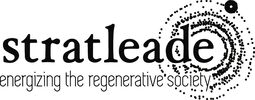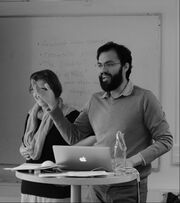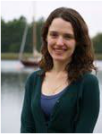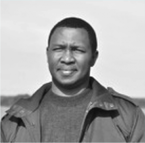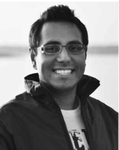Even by coming with a clear goal to the MSLS I am walking out with something unexpected. Don't get me wrong, I have accomplished my “previously defined goals”. However, when I make an inventory of what I have gotten out from this experience, I can only feel grateful for what I have received. For instance, I have a forged understanding of sustainability, yes … and I have grasped so many deep theoretical insights that I will need to read some papers again just to confirm my misunderstanding. Fear not. For my relief, I have confirmed that theories might make me look savvy. Actually, I could have had all that intellectual baggage staying at my own comfort zone wherever and whenever that would have been. The decision to come here is a courageous one. Very quickly I was confronted in mine assessment on how the world works. Imperceptibly, the transition from theory to practice gets ignited. Something started to change beyond the lectures to the hallway conversation. Sometimes giving up was quite uncomfortable for me, but then I saw the opportunity to experiment how was it to think in a different way ... considering others perspectives. I then realised the value of widening my perspective: as I was giving up my own understanding, I was gaining a wider and more comprehensive perspective. The habit of questioning, observing, expanding outlook is something I am taking away from the intellectual standpoint.
As this process was flowing, it made evident how much I didn't know about sustainability. The transition towards sustainability better said. And that was all the practices, techniques, methods, tools, frameworks, aimed specifically to energise change. I understood why and how all the well-intentioned get stuck in stating them in beautiful words. The silliness of having worked in marketing highlighted my stretch areas ahead. It also made my ask myself about the evolution from manager to leader. As I tend to use fancy words to say unfancy things, now I am thinking that sustainability is not only overused but misused. It should be a verb: sustainabiliting.
The passion and commitment brought up from my fellows were both encouraging and inspiring. Their intentional/unintentional actions to overcome from the darkest winter till the frustrating group dynamics taught me a lot and reminded me of the power of humans to become victorious under any circumstance. I am proud to be belong of a community of change-makers.
Also, I am walking out with a handful of friends which I will treasure all my life. The warmness of their heart played a crucial role in the adventure we took as a family.
As this process was flowing, it made evident how much I didn't know about sustainability. The transition towards sustainability better said. And that was all the practices, techniques, methods, tools, frameworks, aimed specifically to energise change. I understood why and how all the well-intentioned get stuck in stating them in beautiful words. The silliness of having worked in marketing highlighted my stretch areas ahead. It also made my ask myself about the evolution from manager to leader. As I tend to use fancy words to say unfancy things, now I am thinking that sustainability is not only overused but misused. It should be a verb: sustainabiliting.
The passion and commitment brought up from my fellows were both encouraging and inspiring. Their intentional/unintentional actions to overcome from the darkest winter till the frustrating group dynamics taught me a lot and reminded me of the power of humans to become victorious under any circumstance. I am proud to be belong of a community of change-makers.
Also, I am walking out with a handful of friends which I will treasure all my life. The warmness of their heart played a crucial role in the adventure we took as a family.
That is what the Master’s in Strategic Leadership towards Sustainability (MSLS) does, it pushes you out of your comfort zone and sooner or later you learn to appreciate it. It has been about a month since I graduated from the programme and I continue to reflect on my ten months’ experience in Karlskrona, Sweden. I am happy with the MSc badge I have today and my learning on how to navigate the complexities of the global sustainability challenge and how to cope with human dynamics. It is still work in progress for me and MSLS was a wake up call.
My first awakening was the different pedagogy employed by the programme. My previous Ghanaian education was very traditional and as a student I always had a lecturer in front of me who knew it all and I simply swallowed what s/he offered. I expected the same in MSLS and I was frustrated when I realized the programme was heavily self taught. I wanted a lecturer in front of the class all the time to lead the sessions but instead we had sparse traditional lectures and more often students were delegated tasks in groups. It took me some time to grasp the efficacy of this pedagogy, mentally it felt like I was a prisoner for so long and even though I was liberated by MSLS to shape my own learning, I almost preferred my imprisonment. Gradually I began to feel more capacitated and regularly contributed to the group work and I soon discovered the rich diversity of my new learning environment. Every student had their own experiences that they could share and together we harvested a lot more than one single lecturer could offer.
The whole process was truly transformational and academically I learnt a lot from all the facilitators. The programme instils in students a holistic science based approach on addressing the global sustainability challenge and is guided by the Framework for Strategic Sustainable Development. Owing to my learning from MSLS I now consider myself a systems thinker and I feel more educated to contribute to sustainability. Most importantly I have learnt that the transformation has to start within myself before I can influence societal transformation. This is one of the tenets of the programme as it recognizes the need to transform leaders that will inspire a larger transformation.
MSLS was a short but intensive period of my personal journey and it was a huge learning experience that really challenged me especially when working with others. Having previously managed an NGO and worked with different nationalities, I thought I was socially smart and adaptable but after several group tasks during the programme, I knew not to take things for granted due to the difference in working styles. In a class of 52 people from 30 nationalities there was a lot to learn. It sometimes felt like a living lab and we had several guest speakers who spoke about human dynamics and shed more light on how to deal with the challenges. I now know not to be complacent and I feel better prepared for future collaborations. MSLS equips you to be principled and open minded at the same time and students develop the skills needed to address global sustainability issues as a team otherwise you end up with sustainability leaders who cannot unite to champion a common cause; a situation which is sadly already a trend in our world today. A quote from one of the sessions that changed my perception of sustainability is “If it is not fun it is not sustainable”. I think this is true for every endeavor and unfortunately sometimes sustainability leaders who do not have fun at it eventually burn out due to continuous mental and physical conflicts.
I am grateful to the administrators for creating the enabling environment and I feel proud to be an alumnus of such a unique programme. I would also like to express my deepest gratitude to StratLeade for providing the funds which sustained me during my study. MSLS would not have been possible for me without StratLeade. Today I join a community of change makers and based on my NGO experience, I will take the knowledge gained and push for sustainability on a larger scale.
My first awakening was the different pedagogy employed by the programme. My previous Ghanaian education was very traditional and as a student I always had a lecturer in front of me who knew it all and I simply swallowed what s/he offered. I expected the same in MSLS and I was frustrated when I realized the programme was heavily self taught. I wanted a lecturer in front of the class all the time to lead the sessions but instead we had sparse traditional lectures and more often students were delegated tasks in groups. It took me some time to grasp the efficacy of this pedagogy, mentally it felt like I was a prisoner for so long and even though I was liberated by MSLS to shape my own learning, I almost preferred my imprisonment. Gradually I began to feel more capacitated and regularly contributed to the group work and I soon discovered the rich diversity of my new learning environment. Every student had their own experiences that they could share and together we harvested a lot more than one single lecturer could offer.
The whole process was truly transformational and academically I learnt a lot from all the facilitators. The programme instils in students a holistic science based approach on addressing the global sustainability challenge and is guided by the Framework for Strategic Sustainable Development. Owing to my learning from MSLS I now consider myself a systems thinker and I feel more educated to contribute to sustainability. Most importantly I have learnt that the transformation has to start within myself before I can influence societal transformation. This is one of the tenets of the programme as it recognizes the need to transform leaders that will inspire a larger transformation.
MSLS was a short but intensive period of my personal journey and it was a huge learning experience that really challenged me especially when working with others. Having previously managed an NGO and worked with different nationalities, I thought I was socially smart and adaptable but after several group tasks during the programme, I knew not to take things for granted due to the difference in working styles. In a class of 52 people from 30 nationalities there was a lot to learn. It sometimes felt like a living lab and we had several guest speakers who spoke about human dynamics and shed more light on how to deal with the challenges. I now know not to be complacent and I feel better prepared for future collaborations. MSLS equips you to be principled and open minded at the same time and students develop the skills needed to address global sustainability issues as a team otherwise you end up with sustainability leaders who cannot unite to champion a common cause; a situation which is sadly already a trend in our world today. A quote from one of the sessions that changed my perception of sustainability is “If it is not fun it is not sustainable”. I think this is true for every endeavor and unfortunately sometimes sustainability leaders who do not have fun at it eventually burn out due to continuous mental and physical conflicts.
I am grateful to the administrators for creating the enabling environment and I feel proud to be an alumnus of such a unique programme. I would also like to express my deepest gratitude to StratLeade for providing the funds which sustained me during my study. MSLS would not have been possible for me without StratLeade. Today I join a community of change makers and based on my NGO experience, I will take the knowledge gained and push for sustainability on a larger scale.
It has been seven months that I am living in Karlskrona, where I was accepted to the respected school Blekinge Tekniska Högskola (BTH) for the Master’s in Strategic Leadership towards Sustainability (MSLS) programme. I chose to study sustainability leadership, because I believe that the remedy for the change of the world towards a self-sustaining, equitable and prosperous way of being is sustainable development. How was the programme for me so far? I believe that this programme wasn’t only educational, but more importantly transformational for me! It conveyed scientific, holistic, and strategic perspectives that are needed in order to better understand and deal with the global sustainability challenge. I gained the knowledge of a holistic approach based on compelling scientific arguments, enhanced with an adaptable practical framework for sustainable development. I learned a lot from Göran Bröman and Karl-Henrik Robèrt, who are the founders of the programme in terms of scientific and strategic understanding. I believe I will go back to my country as a well-equipped future leader. Besides listening to esteemed professors, insights of experienced and innovative leaders from the field deeply impressed me. Göran Carstedt and Bob Willard prepared us with their insights to cope with the challenges by meeting people where they are. Change will happen in the world without using the word ‘change’. It will happen, because the world needs it; leaders are becoming aware of the need and are inspiring other leaders with their actions. As Carstedt emphasized, individual transformation is the starting point of organizational and societal transformation. I believe the individual transformation of the leaders is the leverage point to the societal transformation. That is why the MSLS program is so strategic for sustainable development, as it transforms the leaders that will inspire other leaders. Having a business background, I previously worked with the norms of business as usual and had to feel the lack of creativity and authenticity during my work life. People I met with the workshops, field trips, and webinars in MSLS opened my eyes so wide that I can see the endless possibilities of actions. Adding value to the community while having fun with people is possible, as Edgard Gouveia Júnior does all around the world. Converting a circus into a modern artwork and a school for resiliency in life is what Kajsa Balkfors does. Many of these innovative, incredible leaders that I met during MSLS are groundbreaking to my life. There are many possibilities when you are committed and open at the same time. In MSLS, coming from 28 countries, 43 students, we learned together by listening to these amazing leaders, implementing what we learned to projects, and by teaching each other the tools for sustainable development. The way we questioned, learned, observed, applied, shared insights and harvested the critical points is how we internalize the knowledge and transform at the same time. I appreciate all the effort made by the program administrators, in order to make this learning environment happen. It is outstanding to be a part of this community that will sustain the renovation of the knowledge and the exchange-experience, although we are going back to our countries. People changed the pace of life in such a short time period since industrial revolution, ignoring the natural regenerative pace of our world. I believe people will recover and let a flourishing world be possible for the future generations, as they have all the capacities to collaborate, co-create and take action strategically together. I know that committed, visionary people make the StratLeade fund possible. I am so grateful for each and every person, who contributes to the transformation of a future leader that is thirsty for knowledge, experience, and inspiration each year. With my whole heart, I wish the fund continues to make more and more sustainable development students’ dreams come true.
Greetings from Karlskrona, Berivan Mine Ferhanoğlu
Greetings from Karlskrona, Berivan Mine Ferhanoğlu
Just about a week ago I caught myself thinking about this subject as I was talking to a friend back home. How meaningful this journey has been so far, and how relevant this experience in the leadership thread is – in fact, for me, it is the heart of the MSLS program.
Coming from a similar background in my undergraduate studies, I can see very clearly the difference that it makes having this holistic personal learning as part of the program – learning about myself and others, how we listen and how we learn things, how we can have better conversations. In fact, this has been the most valuable learning that I have had in my life as a student, I believe, even though this is not the kind of knowledge that is usually valued.
Working in sustainability means working in teams. Always. In this field, we don’t achieve anything without co-operation. And of course, these teams will be diverse: multi-disciplinary, multi-cultural, multi-qualities. Each unique in their own perspectives and perceptions, their collaboration. Whether we like this or not, we will deal with this in our everyday lives and now I can say that I feel more prepared, more confident, to face this challenge. Of course, I know there is still a lot to be learned.
On a deeper level, this learning has also allowed me to reflect on other aspects and dimensions of leadership. When we think about leadership, our first thought is about managing companies or teams, but, in fact, we are all leaders in our everyday lives: in the decisions and choices we make, our goals, how we pursue them, our relationships, our work. Leadership is always part of our lives, whether we are aware of it or not, and being able to explore this has been an exciting and empowering journey for me.
As a sustainability professional, I can say that this is the most valuable learning that could be given to us, and that I’m going to take with me.
We had a very inspiring session this week with Göran Carstedt, and I remember him saying that these are times of learning, not knowing.
So, thank you MSLS for this year of meaningful learning. Thank you for being this community of meaningful learning, that I’m already a part of, and that is going to be a part of my leadership journey in sustainability.
And, thank you Stratleade – and everyone who supports Stratleade – for making this opportunity possible.
Coming from a similar background in my undergraduate studies, I can see very clearly the difference that it makes having this holistic personal learning as part of the program – learning about myself and others, how we listen and how we learn things, how we can have better conversations. In fact, this has been the most valuable learning that I have had in my life as a student, I believe, even though this is not the kind of knowledge that is usually valued.
Working in sustainability means working in teams. Always. In this field, we don’t achieve anything without co-operation. And of course, these teams will be diverse: multi-disciplinary, multi-cultural, multi-qualities. Each unique in their own perspectives and perceptions, their collaboration. Whether we like this or not, we will deal with this in our everyday lives and now I can say that I feel more prepared, more confident, to face this challenge. Of course, I know there is still a lot to be learned.
On a deeper level, this learning has also allowed me to reflect on other aspects and dimensions of leadership. When we think about leadership, our first thought is about managing companies or teams, but, in fact, we are all leaders in our everyday lives: in the decisions and choices we make, our goals, how we pursue them, our relationships, our work. Leadership is always part of our lives, whether we are aware of it or not, and being able to explore this has been an exciting and empowering journey for me.
As a sustainability professional, I can say that this is the most valuable learning that could be given to us, and that I’m going to take with me.
We had a very inspiring session this week with Göran Carstedt, and I remember him saying that these are times of learning, not knowing.
So, thank you MSLS for this year of meaningful learning. Thank you for being this community of meaningful learning, that I’m already a part of, and that is going to be a part of my leadership journey in sustainability.
And, thank you Stratleade – and everyone who supports Stratleade – for making this opportunity possible.
t’s been almost 6 months now that I’ve been in Karlskrona, in the southern part of Sweden, studying at the Master’s in Strategic Leadership towards Sustainability (MSLS) program at BTH. At the beginning it was like a dream, and I was not clear about what sustainability could really be. As I went through the program, I was interested in the core concept and the scientific foundations of the lectures. We were taught the concept that human society and our organizations, operating within the biosphere is a complex system, which was not clear for me before joining the program, but as we get through courses and workshops, I understood how much each societal sector and each science field has been for longtime drilling deeper and deeper into their respective “drillholes“ of increasing knowledge but with limited or no understanding of what is going on in the other drillholes.
This provided me with an improved “system thinking” framework and with figures and reports from scientists and organizations; I was able to understand how alarming the earth’s current situation is in terms of sustainability, and how much we need to take quick action to close all of these gaps.
Throughout this interesting program, I have acquired knowledge of applying the Framework for Strategic Sustainable Development (FSSD) combined with several other different tools in with real organizations in the society.
My two colleagues and I are currently at the initial stage of our thesis, which is focusing on religion and sustainability, looking for better ways that faith and religion networks could be used to spread sustainability all over the world, given their presence in every corner of the world.
Upon my graduation I am planning to focus on the electronic waste management and recycling in Africa, starting from my country (Rwanda) as it is still a challenge, and a threat to the environment. Eager to do something in terms of raising sustainability awareness, I look forward to networking with other local and regional sustainability organizations and to mobilizing graduate students to focus thesis research on sustainability studies and assess current challenges in different disciplines to come up with strategic actions to close gaps!
My journey in Sweden would not be possible without the grant received through StratLeade, since I remember at one time last year I was about to cancel my admission application because at that time I couldn’t have another way to afford living expenses in Sweden, but fortunately at that very moment, through the MSLS alumni network, I got in touch with StratLeade. Through the MSLS alumni network, I will keep in touch and provide also my contribution in all the possible ways to this very important initiative.
-- Olivier Mazimpaka, February 2012
This provided me with an improved “system thinking” framework and with figures and reports from scientists and organizations; I was able to understand how alarming the earth’s current situation is in terms of sustainability, and how much we need to take quick action to close all of these gaps.
Throughout this interesting program, I have acquired knowledge of applying the Framework for Strategic Sustainable Development (FSSD) combined with several other different tools in with real organizations in the society.
My two colleagues and I are currently at the initial stage of our thesis, which is focusing on religion and sustainability, looking for better ways that faith and religion networks could be used to spread sustainability all over the world, given their presence in every corner of the world.
Upon my graduation I am planning to focus on the electronic waste management and recycling in Africa, starting from my country (Rwanda) as it is still a challenge, and a threat to the environment. Eager to do something in terms of raising sustainability awareness, I look forward to networking with other local and regional sustainability organizations and to mobilizing graduate students to focus thesis research on sustainability studies and assess current challenges in different disciplines to come up with strategic actions to close gaps!
My journey in Sweden would not be possible without the grant received through StratLeade, since I remember at one time last year I was about to cancel my admission application because at that time I couldn’t have another way to afford living expenses in Sweden, but fortunately at that very moment, through the MSLS alumni network, I got in touch with StratLeade. Through the MSLS alumni network, I will keep in touch and provide also my contribution in all the possible ways to this very important initiative.
-- Olivier Mazimpaka, February 2012
A year has passed and I remember one year ago being excited about starting the Master’s in Strategic Leadership towards Sustainability (MSLS) program. Looking back, I am more than grateful for the opportunity I had to study the MSLS and to live in Sweden for one year; it was an inspiring experience. When I first heard the word sustainability I did not have a clear idea of what it meant. It was after I started reading about Strategic Sustainable Development that things started to make sense. Starting from the first weeks, the MSLS program helped me clarify this with straight forward and clear definitions of what sustainability means, what the challenge is, and what principles we need to follow if we want to live in a sustainable world. Yes, it was a little disappointing to study facts and figures in reports from groups like the IPCC but it was also very encouraging to get hands on with short and practical projects in the first two months of the program.
It helped me see that the framework being taught was very practical and it could be applied to almost any organizations. In my case, we worked with a dog beauty salon and a local public school. This kind of project gave me confidence on the framework and helped clarify aspects of it for me. Towards the end of the course the thesis project helped me to test deeper the concepts learned and try to the what had been learn to a higher level. My thesis partners, Telma Gomes (Brazil), Chen Chen Gu (China), and I conducted research on how to successfully integrate vocational and technical education with sustainability. The final product is titled “Technical and Vocational Education and Training in Support of Strategic Sustainable Development.” which is now available for view and download on www.bth.se/msls This was a valuable experience as we got in touch with different educational organizations and experts to come up with a model for educational organizations to successfully support strategic sustainable development.
Now that the program has ended I look back and I am thankful for this opportunity. It would not have been possible without the support of the grant received through StratLeade from all the alumni, people and business that donated. Now I am in contact with alumni in the region to start working together towards helping businesses and organizations in the region move towards sustainability. It is time to be a sustainability leader!
- Samuel Brizuela, August 2011
It helped me see that the framework being taught was very practical and it could be applied to almost any organizations. In my case, we worked with a dog beauty salon and a local public school. This kind of project gave me confidence on the framework and helped clarify aspects of it for me. Towards the end of the course the thesis project helped me to test deeper the concepts learned and try to the what had been learn to a higher level. My thesis partners, Telma Gomes (Brazil), Chen Chen Gu (China), and I conducted research on how to successfully integrate vocational and technical education with sustainability. The final product is titled “Technical and Vocational Education and Training in Support of Strategic Sustainable Development.” which is now available for view and download on www.bth.se/msls This was a valuable experience as we got in touch with different educational organizations and experts to come up with a model for educational organizations to successfully support strategic sustainable development.
Now that the program has ended I look back and I am thankful for this opportunity. It would not have been possible without the support of the grant received through StratLeade from all the alumni, people and business that donated. Now I am in contact with alumni in the region to start working together towards helping businesses and organizations in the region move towards sustainability. It is time to be a sustainability leader!
- Samuel Brizuela, August 2011
|
StratLeade is as a U.S. based 501C-3 non-profit organization
|
© COPYRIGHT 2022. ALL RIGHTS RESERVED.
|
